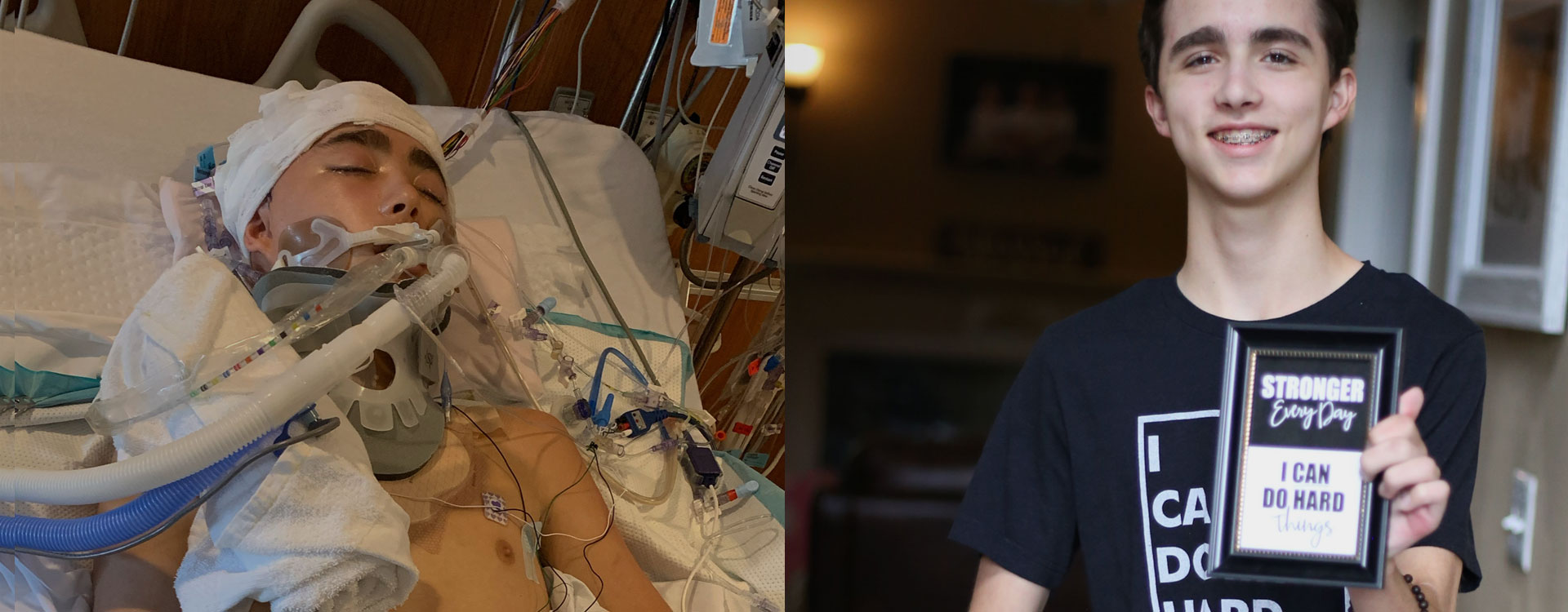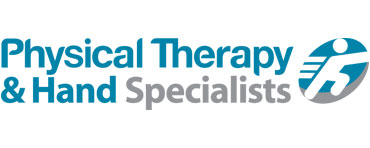Recovering from traumatic brain injury and becoming “Stronger Every Day”

When Eli Hairston first came home from the hospital, he slept in his parents’ room so they could tend to his needs.
Progress has been steady but arduous, as evidenced by the climb upstairs when he began spending Friday nights in his own room.
Ascending the 16 stairs took him two minutes, 34 seconds.
But there has been no quit in Eli since Nov. 16, 2019, the day he suffered a severe brain injury after falling off a golf cart. He now sleeps every night in his room; he can scale the stairs in 36 seconds.
“He’s just a fighter,” marvels his father, Jay Hairston.
Jay and his wife, Leisha, also are parents to Sam, 16; Luke, 11; and Campbell, 7. The tight-knit family has garnered the support of close friends and complete strangers alike in rallying behind Eli.
The Hairstons have summoned their religious faith, too. Meanwhile, some 15,000 people follow the Facebook page, Praying for Eli, which is adorned at the top by a photo of him wearing a ballcap, his wide smile exposing the braces on his teeth.
Jay noted how hard Eli’s injury has been for his younger siblings, to see their brother struggle with tasks that used to be second nature. But they’re also his biggest fans, offering a “good job” or a high-five when they see how hard he is working to come back.
There is no quit in Eli, Jay said, emphasizing the power of words. They talk of the skills and tasks that haven’t returned “yet,” suggesting that success is inevitable but understanding that months of therapy and hard work remain.
“I want him to view himself as a kid recovering from an injury,” Jay said, “but it’s a long recovery.”
Eli was riding on the back of a golf cart without a seat belt at the time of the accident. The cart hit a bump while turning a corner, Eli’s head hitting a curb. He suffered a fractured skull and brain bleeding. By the time EMTs arrived, Eli wasn’t breathing.
Doctors performed an emergency craniotomy, the first of four surgeries Eli has endured. There were multiple strokes and seizure-like “neuro-storms,” six days in a medically induced coma, 10 days of intubation, six weeks on a feeding tube, 82 nights in Children’s of Alabama hospital.
But Eli’s indomitable spirit and work ethic have shone through with each twist and turn of fate.
“He has no work allergies, that’s for sure,” Jay said.
The right-side brain injury affected the left side of Eli’s body, as well as some of his cognitive function.
“He’s having to relearn so many other things, though,” Jay said. Some of it involves neuromuscular re-education as, for instance, sometimes when he wants to activate his left hamstring in order to move his left leg, his quadriceps will engage instead. Or the result might be “dual engagement” in which two muscles compete against each other.
His physical and occupational therapy began in the hospital, therapists moving his muscles for him while he was in intensive care. Anticipating that Eli would respond well to his home environment, doctors released him from in-patient care on Feb. 6. He continued with outpatient therapy through Children’s of Alabama into March, when the pandemic interrupted his treatment.
The Hairstons live near Susan Guillen, regional sales manager for our sister company, Drayer Physical Therapy. Through her, Eli continued his treatment at Drayer’s Chelsea clinic (and, after that clinic’s temporary shutdown for Covid-19, to sister company BenchMark Physical Therapy in Chelsea.)
Kevin Luong, a Drayer physical therapist and clinic director at Drayer’s Chelsea location, has worked with Eli throughout.
“Man, he’s an impressive kid,” Kevin said. “He really has an incredible work ethic to improve and get better.”
From initially having “extreme difficulty” with any unsupervised walking, Eli now can walk six to 10 feet independently, Kevin said. Although deficits remain with transitional movements (stop to start, changing direction, getting up from a chair), Eli now can sequence the correct steps.
Father and son push each other, Kevin said, often drawing upon competitiveness culled from Eli playing basketball and football. If Kevin suggests a set number of exercises, Eli tries to do one or two more.
“They approach rehab a lot as if they’re athletic training,” Kevin said. It’s a mindset that helps Eli strive to take his recovery from where it is to where he wants it to be.
Without Drayer/BenchMark, Jay said, Eli would have had no therapy as the pandemic took hold.
“It could have – it would have – stunted his progress,” Jay said, noting, “The people at Drayer have always treated Eli as a person, not a patient.”
The hospital reopened its in-patient physical therapy in mid-May, so Eli goes there Mondays and Thursdays for occupational and physical therapy, and Wednesdays and Fridays visits Drayer for mostly physical therapy to work on mobility and strength.
As of early June, Eli was learning to walk with a quad cane. He sometimes walks with the assistance of a gait belt around his waist, which allows a caregiver to keep him from falling as he improves his mobility.
But even if Eli falls, it’s certain that he’s getting back up. Stride over stride, he’s moving toward a dramatic moment.
Across America, uncertainty abounds over the reopening of schools in the era of Covid-19. Eli Hairston is as powerless as any other 14-year-old with regard to that.
But this much he vows: When in-person classes resume, he’s walking in with the rest of the freshman class at Chelsea High School.
